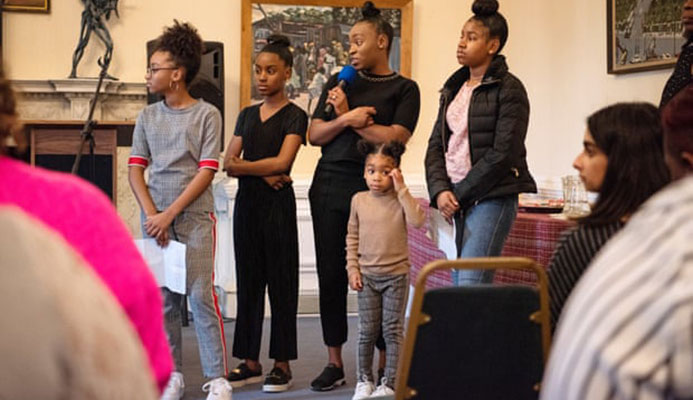Top diplomat hosts emotional meeting of relatives of those deported this month
The Jamaican high commissioner has called for a suspension of deportations to Jamaica until the Home Office has published its investigation into the Windrush scandal.
At an emotional meeting of relatives of people who were deported to Jamaica earlier this month, held at the Jamaican high commission in London, the high commissioner, Seth George Ramocan, said he was particularly concerned about the deportation of people who had lived in the UK since they were children, and also the removal of parents who had young children living in Britain.
Listening to stories he described as “heart-rending” from families of those deported, the high commissioner said he was concerned about the “dignity and the human rights of the individuals earmarked for deportation”.
“If these are people who have lived here since they were children, they have no connection, no relatives, no one to take care of them in Jamaica, then this for me is a human rights matter,” Ramocan said. “It is not just the people who are being deported, it is their children, it is their families. Are we acting intelligently, are we creating another set of problems when we do that?”
The high commission had called a meeting of about 45 relatives of those deported, and also those who were still detained in immigration removal centres having escaped deportation, to hear their accounts of how people had been put on a charter flight earlier this month. The high commissioner was hoping to understand the details of how the Jamaican nationals had been treated, as part of an investigation, to inform a discussion with the Jamaican government about how they cooperate with the Home Office on future deportations.
Initially there was a list of 50 people scheduled to be on the February flight, which the home secretary said included murderers and rapists. In the days and hours before the flight, about 20 people were given a last-minute reprieve and only 28 men and one woman were deported. Half of those flown to Jamaica had drug convictions, while one had committed a dangerous driving offence.
Mothers, wives, children and fathers described the trauma of seeing family members deported; many of them were in tears as they recounted the events leading up to the flight. They described immigration officers arriving before dawn and kicking down doors, before taking family members to immigration removal centres. One woman described spending £22,000 on legal fees without managing to stop the deportation of her husband who had attended primary and secondary school in the UK. Another described a friend, who had also been in Britain since primary school, attempting to kill himself when he learned that he was facing deportation.
Family members asked why their relatives were being punished twice, having served their time in prison and then facing deportation. They asked about the impact on children growing up without their fathers.
Owen Haisley, who has lived in Britain for 41 years since arriving at the age of four, and who has three British children, is still in immigration detention. He was convicted of domestic abuse and spent 16 months in jail in 2016–17. His mother, Dennah Patterson, said: “Owen came here when he was four years old. He knows no one back in Jamaica. We are all here. He has made his life here. I feel let down by my country.”
Chevon Brown, 23, was among those on the flight. He came to the UK when he was 14, and served eight months in prison for dangerous driving. He is currently staying with a family friend in Kingston. His father, Vance Brown, said: “Things are not going very well for him there. Nobody has reached out to him; there has been no support at all in Jamaica. I feel he has been unfairly treated; he is being punished twice.” He said his son was feeling extremely depressed, and had no money, except the £40 he had sent him a week ago.
Charmaine Bacchas, who has been married to Dalton Bacchas for 13 years, came to the meeting with her four children. Dalton Bacchas was not deported in early February, after last-minute legal action, but is still waiting to hear whether he will be deported in the next few months.
Their two elder daughters, Sheniova Bacchas, 14, and Gennique Bacchas, 12, described witnessing 20 to 30 immigration officers “swarming into their bedroom” at 5am.
“I hate seeing my parents stressed and upset all the time,” Sheniova said. “I hope the government will learn some common sense.”
Ramocan expressed sympathy both with the problem of punishing people twice and also removing parents of young children. “How civilised are we if we cannot see the possibility of restoring individuals who find themselves in this in situation? Is deportation the only option? Can we look at other options? These children will grow up with a resentment of the system,” he said.
Karen Doyle, of the Movement for Justice – an anti-deportation campaigning organisation that helped organised the meeting, told the high commissioner: “Less than a year after Windrush, more than any other country, Jamaica should be standing up and saying it will no longer cooperate with charter flights. You know the depth of the wrong decisions that are made by the Home Office.”

